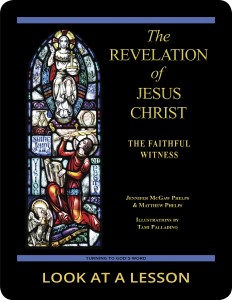evil
 In the Gospel According to Matthew 12:34–35 (NABRE), Jesus contrasts good and evil treasures. This contrast is made more interesting because one of the Greek words chosen is not what might be expected in this context.
In the Gospel According to Matthew 12:34–35 (NABRE), Jesus contrasts good and evil treasures. This contrast is made more interesting because one of the Greek words chosen is not what might be expected in this context.
The Greek word translated as “good” is ἀγαθός (agathos), the Greek adjective meaning “good.” The word translated here as “evil” or “wicked” is the Greek word πονηρός (poneros), which is not the standard Greek opposite of agathos. The root concept of poneros is “being oppressed by toils” and takes a negative connotation that suggests being useless or worthless.
Why do you think worthless is the concept suggested here as the opposite of good? What does this contrast imply about what was treasured by the people that Jesus was addressing?
related topics: demonic possession; Evil One; Satan & Beelzebub
you also may like our study of the book of Revelation
 The Revelation of Jesus Christ: The Faithful Witness, a 23-lesson Catholic Bible study with an imprimatur, examines ways in which our traditional Christian view of heaven is built on Hebrew apocalyptic visions recorded in the Old Testament. This recently revised study includes maps and additional commentary and takes a close look at the role of the prophets in present-day Christianity. Illustrations by Tami Palladino depict the often-misunderstood images in the book of Revelation. Click on the book’s cover to view a sample lesson.
The Revelation of Jesus Christ: The Faithful Witness, a 23-lesson Catholic Bible study with an imprimatur, examines ways in which our traditional Christian view of heaven is built on Hebrew apocalyptic visions recorded in the Old Testament. This recently revised study includes maps and additional commentary and takes a close look at the role of the prophets in present-day Christianity. Illustrations by Tami Palladino depict the often-misunderstood images in the book of Revelation. Click on the book’s cover to view a sample lesson.
 Click on the picture of the statue of Moses with horns (above) to learn more about Lost in Translation. A new entry is archived each Monday. Contact us to receive Lost in Translation by email every week. You may use any of the contact links on our website to ask Matthew a question.
Click on the picture of the statue of Moses with horns (above) to learn more about Lost in Translation. A new entry is archived each Monday. Contact us to receive Lost in Translation by email every week. You may use any of the contact links on our website to ask Matthew a question.
